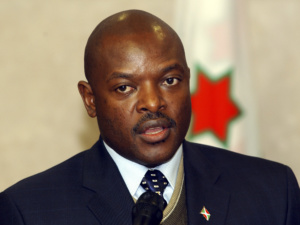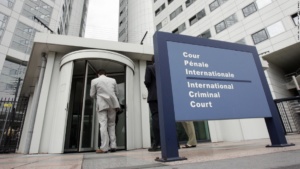By Peter Olorunnisomo – The International Criminal Court (ICC) at The Hague has approved a request to investigate war crimes allegedly committed in Burundi by the government and government-linked groups against political foes on from April 2015 to October 2017 on Thursday.

It would appear that Burundi’s decision to withdraw from the court as of Oct. 26, 2017 may have been taken to stop the investigation by her non-membership. However, the ICC will still have jurisdiction over crimes committed while Burundi was a member and compliant with membership.
A statement from the ICC has it that the country’s government “launched a widespread and systematic attack against the Burundian civilian population… targeting those who opposed or were perceived to oppose the ruling party.”
The court also said the prosecutor had shown enough evidence of crimes against humanity to merit a formal investigation, including murder, torture, rape and persecution that led to more than 1,000 deaths.
An uneasy tension has gripped Burundi since the announcement, in April 2015, that President Pierre Nkurunziza would seek a third term in office. He won in July of that year, despite protests that the vote was rigged and that his seeking a third term violated both the constitution and the terms of an agreement that had ended a previous rebellion.
UN rights investigators and independent activists have accused government forces of widespread violations, including forced disappearances, and of orchestrating a campaign of terror. Around 400,000 people have fled to neighbouring countries amid the unrest, which has crippled Burundi’s economy.

Reacting to the court decision, top Nkurunziza adviser Willy Nyamitwe tweeted: “The corrupt ICC just shot itself in the foot.”
“This is obviously cheating, but no doubt Burundi will be the winner in this battle. This is the last card of the Western powers,” he said
The government of the country’s attempt to stall the investigation of the court did not achieve the desired goal as Burundi on Friday became the first nation ever to leave the international criminal court, set up 15 years ago to prosecute those behind the world’s worst atrocities.
The government on Friday hailed it a “historic” day and called on people to demonstrate across the country on Saturday in celebration.
An ICC spokesperson said: “Burundi’s withdrawal from the Rome Statute will take effect on Friday, 27 October 2017,”
The move comes a year to the day after Bujumbura officially notified the United Nations that it was quitting the world’s only permanent war crimes tribunal.
“The ICC has shown itself to be a political instrument and weapon used by the west to enslave” other states, said presidential office spokesman Willy Nyamitwe. “This is a great victory for Burundi because it has defended its sovereignty and national pride.”
But activists mourned what was seen as a major blow to international justice. “The decision to withdraw Burundi from the Rome Statute comes at a time when the machine continues to kill with impunity in Burundi,” said Lambert Nigarura, the president of the Burundi Coalition for the ICC.
“Today, Burundian justice, as it is so called, has lost contact with life. It has become a mere tool of repression of any dissenting voice,” he added in a statement.
However, ICC officials said a preliminary investigation launched by the prosecutor in April 2016 into possible crimes against humanity in the central African nation would continue. “Burundi’s withdrawal does not affect the jurisdiction of the court with respect to crimes alleged to have been committed during the time it was a state party, namely up until 27 October 2017,” the spokesperson said.
The initial investigation was started by ICC chief prosecutor Fatou Bensouda following reports of “killing, imprisonment, torture, rape and other forms of sexual violence, as well as cases of enforced disappearances”.
The reports came amid a violent political crisis triggered when President Pierre Nkurunziza ran for a third term in office, winning elections in July 2015 that were boycotted by the opposition.
UN investigators last month urged the ICC to move forwards and open a full-scale investigation saying they had reasonable grounds to believe that crimes against humanity have been committed in “a systematic attack against the civilian population”.
Overall, the violence in Burundi has claimed between 500 and 2,000 lives, according to differing tolls provided by the UN or NGOs, and more than 400,000 Burundians have fled abroad.
Set up in 2002, the ICC based in The Hague has often come under fire from some countries who claim it is unfairly targeting African nations.
The ICC now has 123 member states that have ratified the 1998 Rome Statute, the guidelines which underpin the work of the tribunal.
But Burundi’s snub triggered a wave of copy-cat moves from other African countries. South Africa and Gambia said they would both follow suit, but later reversed their decisions. And Kenya and Uganda have also threatened to leave, but not acted on it yet.
Zambia meanwhile has held public consultations, with an overwhelming 93% of those who participated opting to stay within the court.
Kindly follow us on twitter:@AfricanVoice2









